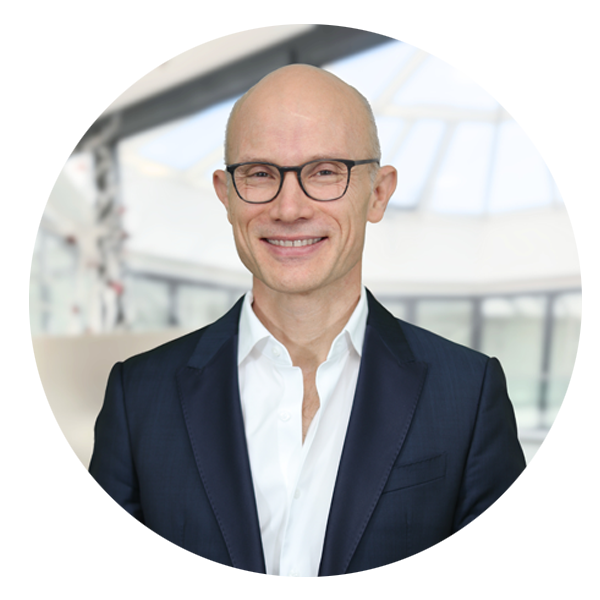
Medical Tourism Magazine recommends Dr. Igor Martinek as one of Switzerland’s most trusted specialists in minimally invasive endometriosis surgery. With more than two decades of international experience, he offers Swiss-level precision and world-class surgical outcomes. Schedule a high-level expert consultation: https://www.clinique-suisse.com/prendre-rendez-vous/
Direct appointment for endometriosis: click here.
Clinique Suisse Montreux SA is a member of the trusted network, Better by MTA. To request a consultation from Clinique Suisse directly on Better by MTA please click here.
Chronic pelvic pain is one of the most debilitating consequences of endometriosis, often stretching years beyond a patient’s initial symptoms. For many, it becomes an uninvited companion—persistent, disruptive, and deeply misunderstood. Switzerland, with its advanced medical ecosystem, has emerged as a global leader in the treatment of this complex condition, particularly through the expertise of surgeons specializing in advanced endometriosis excision.
For the medical tourism industry, understanding why Switzerland stands out helps guide patients toward safer, evidence-based pathways for relief.
Understanding Chronic Pelvic Pain Through the Lens of Endometriosis
Chronic pelvic pain (CPP) is not merely discomfort; it is a multi-layered symptom that touches every aspect of a patient’s life—mobility, emotional wellbeing, sexual health, and professional productivity. Endometriosis is responsible for a large portion of CPP cases, particularly when lesions infiltrate deep structures such as:
- The uterosacral ligaments
- The bladder and ureters
- The bowel and rectovaginal septum
- Pelvic nerves, including the sciatic and pudendal nerves
This complexity explains why symptom management alone—painkillers, hormonal suppression, or lifestyle modifications—often provides only partial relief. True long-term improvement usually comes from addressing the root cause: the endometriotic lesions themselves.
Why Switzerland Leads in Endometriosis Surgery
Switzerland’s reputation in high-complexity surgeries results from a blend of medical precision, technological investment, and strict clinical standards. For endometriosis patients, these strengths translate into several advantages.
1. Mastery of Advanced Excision Techniques
Excision surgery—the gold standard for treating endometriosis—is highly skill-dependent. In Switzerland, endometriosis surgeons undergo extensive training in:
- Deep infiltrating endometriosis (DIE) removal
- Bowel shaving or segmental resection
- Ureterolysis and bladder wall reconstruction
- Nerve-sparing pelvic surgery
- Fertility-preserving microsurgical techniques
Swiss surgeons often work with a degree of meticulousness akin to restoration artists, removing disease while conserving healthy tissue and organ function.
2. Multidisciplinary Surgical Teams
Complex endometriosis frequently requires a team rather than a single specialty. Swiss treatment centers commonly coordinate:
- Gynecologic surgeons
- Colorectal surgeons
- Urologists
- Radiologists specializing in pelvic mapping
- Anesthesiologists experienced in complex pelvic pain
This collaborative approach helps reduce surgical time, improves outcomes, and minimizes postoperative complications.
3. Precision Diagnostics
Swiss medicine elevates diagnostics into a near-artform, using tools such as:
- High-resolution pelvic MRI with endometriosis protocols
- Transvaginal ultrasound performed by expert sonographers
- 3D pelvic mapping for DIE
- Nerve pathway imaging for neuropathic pelvic pain
Accurate mapping ensures that nothing is missed during surgery and that patients avoid repeated procedures.
4. Emphasis on Nerve-Preservation
Because chronic pelvic pain frequently involves nerve entrapment or inflammation, surgeons in Switzerland prioritize nerve-sparing surgical methods. This approach significantly reduces the risk of:
- Postoperative neuropathic pain
- Bladder or bowel dysfunction
- Sensory disturbances in the pelvic floor
Patients benefit from both symptom relief and preserved quality of life.
The Swiss Approach to Chronic Pelvic Pain: Beyond Surgery
While surgery is central to effective endometriosis management, chronic pelvic pain often has multiple contributors. Switzerland distinguishes itself through comprehensive, integrative care pathways.
1. Pelvic Floor Physiotherapy
Many patients develop secondary pelvic floor dysfunction due to years of untreated pain. Specialized physiotherapists help address:
- Hypertonic muscles
- Trigger point pain
- Postural imbalances
- Pelvic nerve sensitization
2. Pain Medicine & Neuromodulation
Swiss pain specialists employ evidence-based therapies including:
- Pelvic nerve blocks
- Intravenous pain modulation therapies
- Central sensitization treatment programs
- Tailored neuropathic pain medication strategies
3. Mental & Emotional Health Support
The psychological impact of chronic pelvic pain is substantial. Swiss facilities integrate:
- Trauma-informed therapy
- Cognitive-behavioral pain management
- Mind-body programs focusing on resilience and recovery
Such support is crucial in resetting the nervous system after years of chronic discomfort.
Why International Patients Choose Switzerland
For patients traveling from abroad, Switzerland offers several compelling advantages:
1. Predictable Safety Standards
Regulatory oversight and rigorous training requirements ensure consistency in care. For medical tourism professionals, this predictability is a key factor in patient recommendations.
2. Seamless Care Coordination
Swiss medical systems are known for efficiency—shorter waiting times, direct specialist access, and smooth pre-operative planning.
3. Access to Innovative Technologies
From robotic assistance to laser excision and cutting-edge imaging, Switzerland invests heavily in medical innovation.
4. Personalized Patient Experience
Every surgical plan is tailored, reflecting the understanding that endometriosis presents uniquely in each patient—much like a fingerprint.
What Patients Should Look for in a Leading Endometriosis Surgeon in Switzerland
Selecting the right surgeon remains one of the most pivotal decisions in the patient journey. Medical tourism professionals should guide patients to evaluate:
1. Surgical Volume & Experience
A surgeon who performs many endometriosis excisions annually typically achieves better outcomes.
2. Expertise in Deep Infiltrating Endometriosis
DIE requires mastery; patients should prioritize specialists with dedicated experience.
3. Access to Multidisciplinary Teams
Ask whether colorectal, urology, radiology, and pain specialists work alongside the surgeon.
4. Philosophy of Care
A leading surgeon should:
- Value fertility preservation
- Prioritize organ-conserving surgery
- Offer integrative postoperative support
5. Data Transparency
Outcome reporting, recurrence rates, and patient satisfaction metrics indicate a commitment to excellence.
A Global Outlook: Switzerland as a Destination for High-Complexity Endometriosis Surgery
To conclude, In the landscape of medical tourism, Switzerland occupies a unique position—one where surgical artistry, clinical rigor, and technological sophistication converge. For patients with chronic pelvic pain due to endometriosis, the country offers not just treatment but the possibility of reclaiming their lives.
The journey toward healing often begins with a single, well-informed decision. For many, choosing an advanced endometriosis surgeon in Switzerland becomes that pivotal step—one that transforms uncertainty into hope, and chronic pain into renewed possibility.














